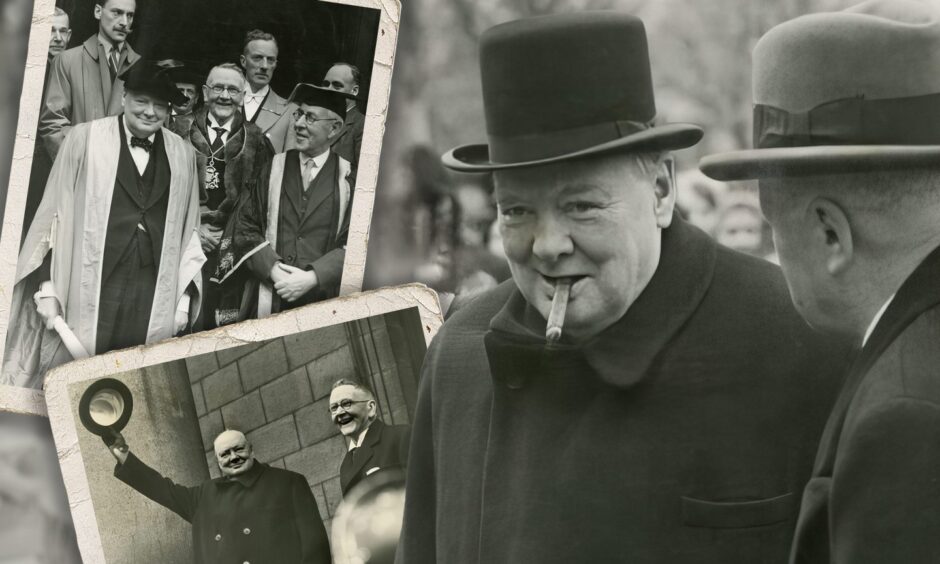
There’s no doubt that Winston Churchill, whose birthday falls today [November 30], held Aberdeen dear to his heart.
He visited the city many times, from as early as 1901 when he would have been 27, and according to contemporary newspaper reports, was always met with cheers, applause and laughter at his witticisms.
After steering Britain through World War Two, the city granted him Freedom of the City at the Music Hall, followed by an honorary degree at Aberdeen University’s Mitchell Hall, on April 27, 1946.
“In deciding unanimously to confer the freedom of the city upon Mr Winston Churchill, Aberdeen town council has done honour not only to a great man, but also to itself,” said the P&J in 1945.
“Since the recent municipal election, the majority of council members are opposed to Mr Churchill’s politics. They have not let party feeling stand in the way of their recognition of his unparalleled and inestimable services to the nation and Commonwealth as war leader.
Inspiration and indomitable leadership when Winston Churchill came to Aberdeen
“Every citizen in Aberdeen will greet the council’s decision with profound satisfaction. In no part of the country, or the Empire, has there been greater appreciation than here of the inspiration derived from Mr Churchill’s courage , the splendour of his public utterances and the quality of his indomitable leadership in the recent days of grave danger to our lives and nationhood.
“We cannot forget how, with imperishable words and phrases, with unflagging ardour, he rallied the spirit of his countrymen, and through perils and tribulation, brought them through disaster to victory.
“We should be ungenerous and ungracious indeed if the debt to him were forgotten.
“It is not being forgotten by Aberdeen.”
At the time of the ceremony, it was reported that wherever Churchill went there was welcoming laughter and applause, and this “swelled to a roar as he moved up in the procession through a packed audience which had waiting long and patiently for his arrival.”
At the Music Hall, Churchill said: “Aberdeen is famed for warm hearts, keen affection and bright eyes.”
He described his ties to Scotland in general as ‘precious and lasting.’
“First of all, I decided to be born on St Andrew’s Day—and it was to Scotland I went to find my wife. [Clementine Hozier, whose mother Lady Blanche Hozier was the daughter of David Ogilvy, 10th Earl of Airlie]
“I commanded a Scottish battalion of the famous 21st Regiment for five months in the line in France in the last war. I sat for 15 years as the representative of ‘Bonnie Dundee’ and I might be sitting for it still if the matter had rested entirely with me.”
Here Churchill is referring to his acrimonious fall out with Bonnie Dundee, after losing his seat there in 1922.
He had refused an invitation to become a burgess of Dundee some three years before he accepted the invitation of the Aberdeen city fathers.
The First World War service he referred to was commanding the 6th Battalion of the Royal Scots Fusiliers on the Western Front.
No-one could say he didn’t understand Scottish politics from every perspective. During this time his adjutant was Andrew Dewar Gibb, a future leader of the SNP, and his second in command was Archibald Sinclair who went on to be leader of the Liberal Party and a member of Churchill’s coalition government from 1940.
Invergordon even figured in Churchill’s mind during World War Two, when he proposed it as a the location for a meeting with Roosevelt and Stalin.
His tongue must have been firmly in his cheek when he suggested “the weather might be agreeable in Scotland at that time.” Sadly the US president declined, depriving Easter Ross of its place in diplomatic history.
Churchill’s 1901 visit to Aberdeen took place before a large audience in the Music Hall, where he gave a lecture on ‘The War As I Saw It’.
Churchill was referring to the Boer War in South Africa, where he had gone as a war correspondent and been captured while travelling in an armoured train.
Churchill related this story, and “most vivid and touching of all was the story of his escape with its thrilling adventures and hardships,” the press reported.
“At the close the chairman, JW Crombie, MP for Kincardineshire said he was sure the audience had been delighted with the witty and eloquent lecture.”
Churchill’s early wit and eloquence emerged again in 1904 in a speech he gave in Aberdeen and which was reported with plaudits across the national press.
He was principal speaker at a huge Free Trade demonstration held at the Palace Theatre on February 1.
Speaking to an enthusiastic crowd of 4,000, he showed signs of the oratory which would guide Britain through the horror of World War Two and was headlined as ‘One of the Nation’s Great Hopes.’
Speaking in favour of free trade, he said: “Everything changed under the sun but principles; they did not change, and whatever was economically or scientifically true in the economical propositions of 40 years ago, in the debates of a far greater generation than our own, was just as true in 1904 and would still be true so long as man continued to trade.”
He also took the opportunity to address the Young Scots Society, which went down so well its chairman described it as one of the most successful meetings that had ever been held in Aberdeen.
Churchill’s time in Inverness
In 1910, Churchill spoke in Inverness to huge crowds at the Macrae & Dick garage.
More than a thousand people couldn’t get in, so he addressed an overflow meeting in the Music Hall of Inverness (which has since sadly burned down).
This was at the height of the suffragette militant movement’s disruption of public meetings, so the several hundred ladies present had to ‘sign declarations for their good conduct.’
On this occasion, Churchill found favour with his audience by lambasting the House of Lords for trying to take control of finance from the House of Commons.
“Take finance from the control of the House of Commons and our whole system must collapse,” he said.
“The claim of the House of Lords was to make and unmake Governments, and in the absence of a sweeping repudiation of this claim, this unregenerate and unimproved assembly would become the main source of all political power and the centre from which Governments are created and displaced.”
There were cheers as he went on: “It was a matter of life and death to the democratic government of the country.”
In a long editorial about Churchill as Freeman-Elect of Aberdeen, The P&J said: “Even from his boyhood, Winston Leonard Spencer Churchill, who will receive the freedom of Aberdeen, has been unorthodox and the possessor of an erratic brilliance that baffled his teachers as it baffled his political opponents in later life.
“His parents and school masters despaired of his learning sufficient to enter any of the professions.
“If any prophet had told them he was destined to become one of the great world leaders in the biggest war in history, incredulity would have raised their eyebrows.”
More like this:
Ernie Young: The Jewish refugee who welcomed Winston Churchill to Aberdeen in 1946

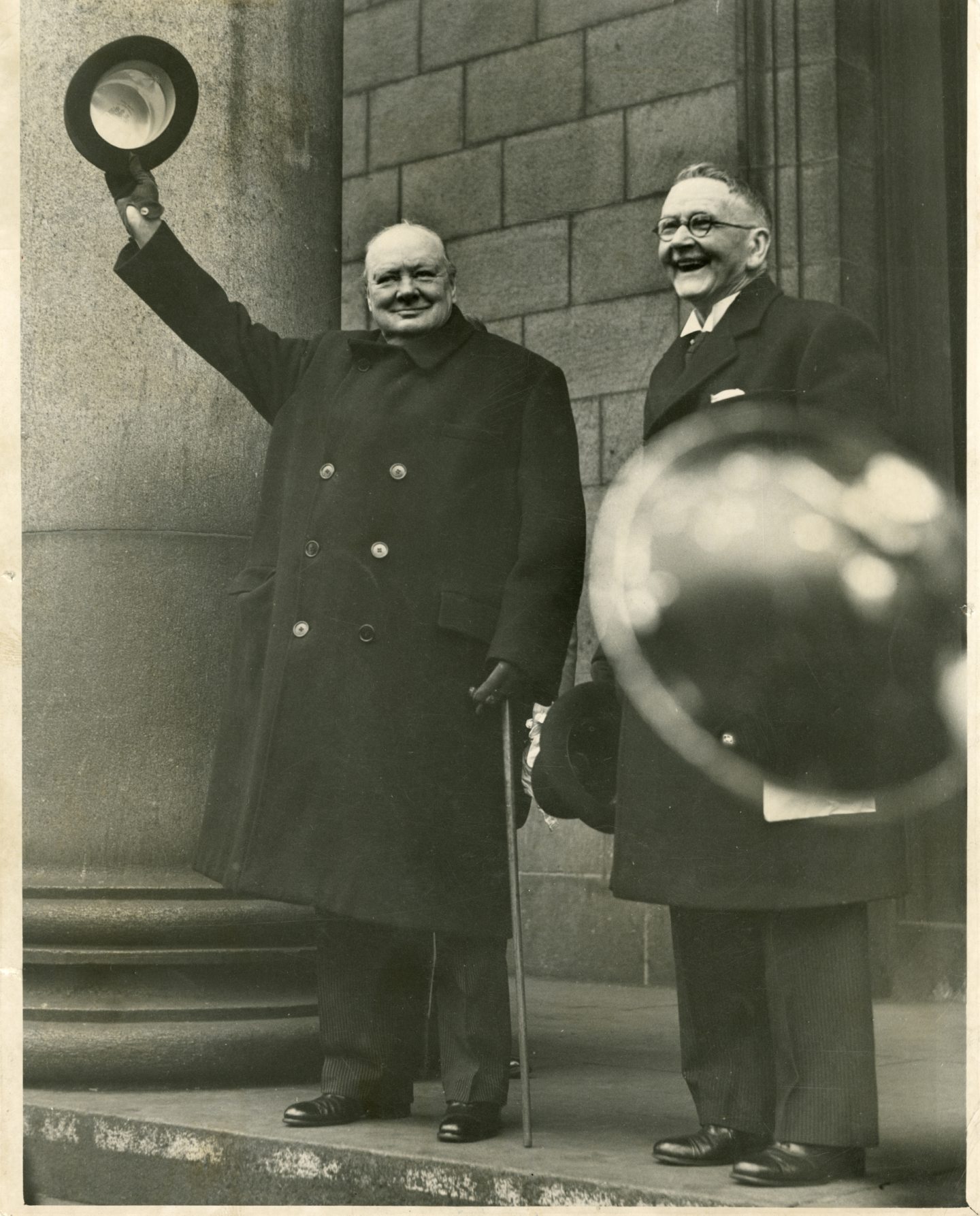

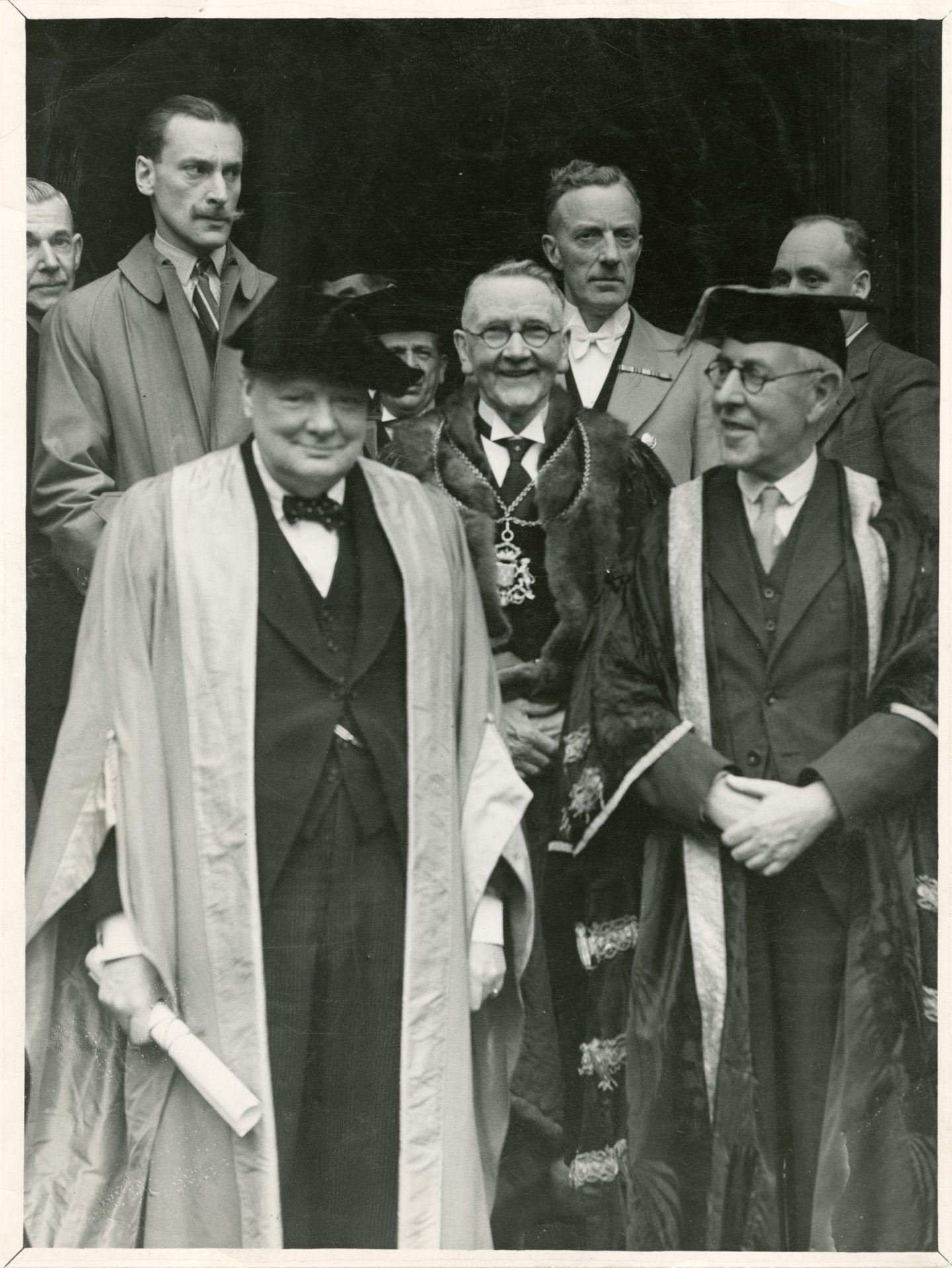
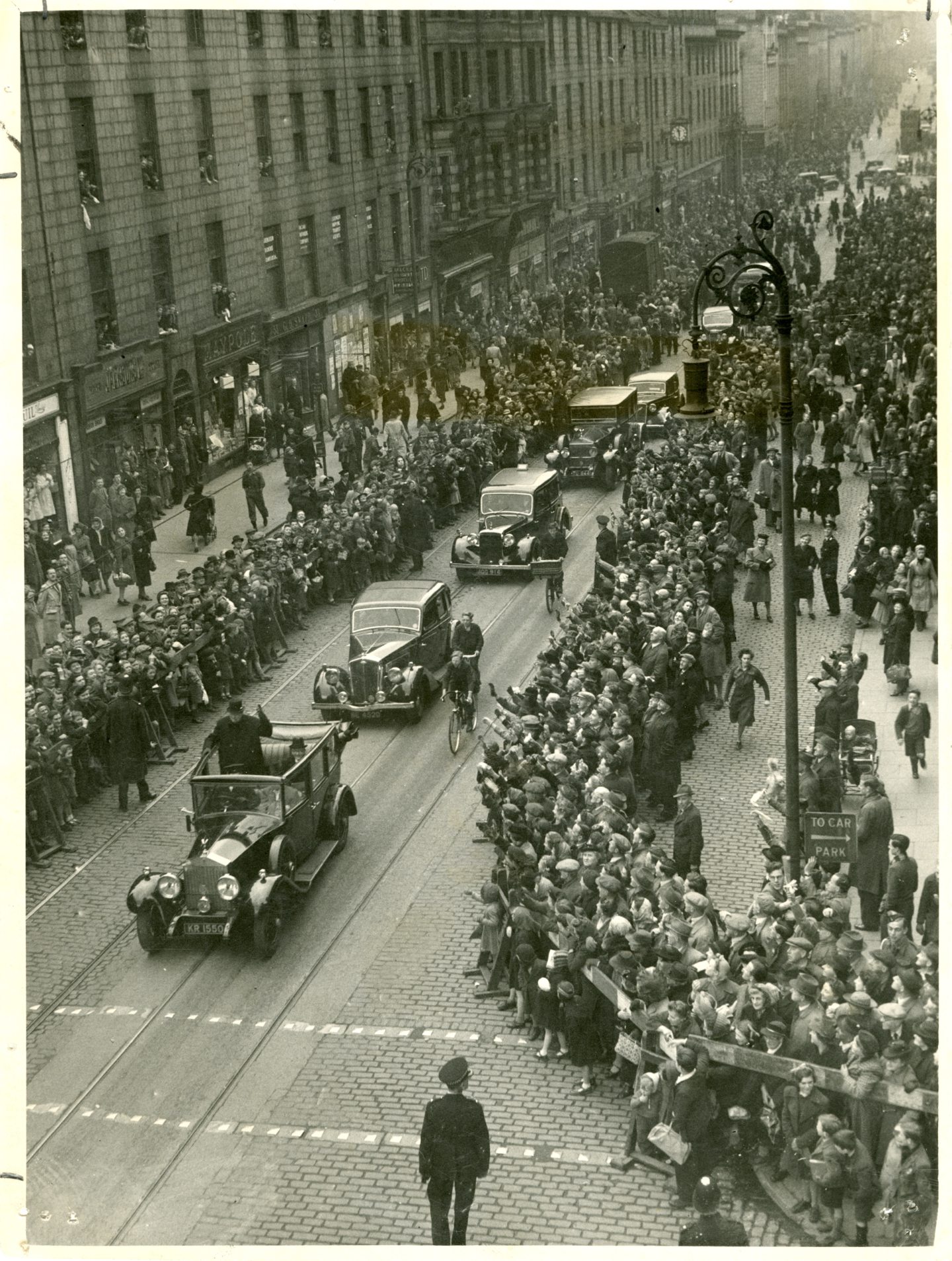

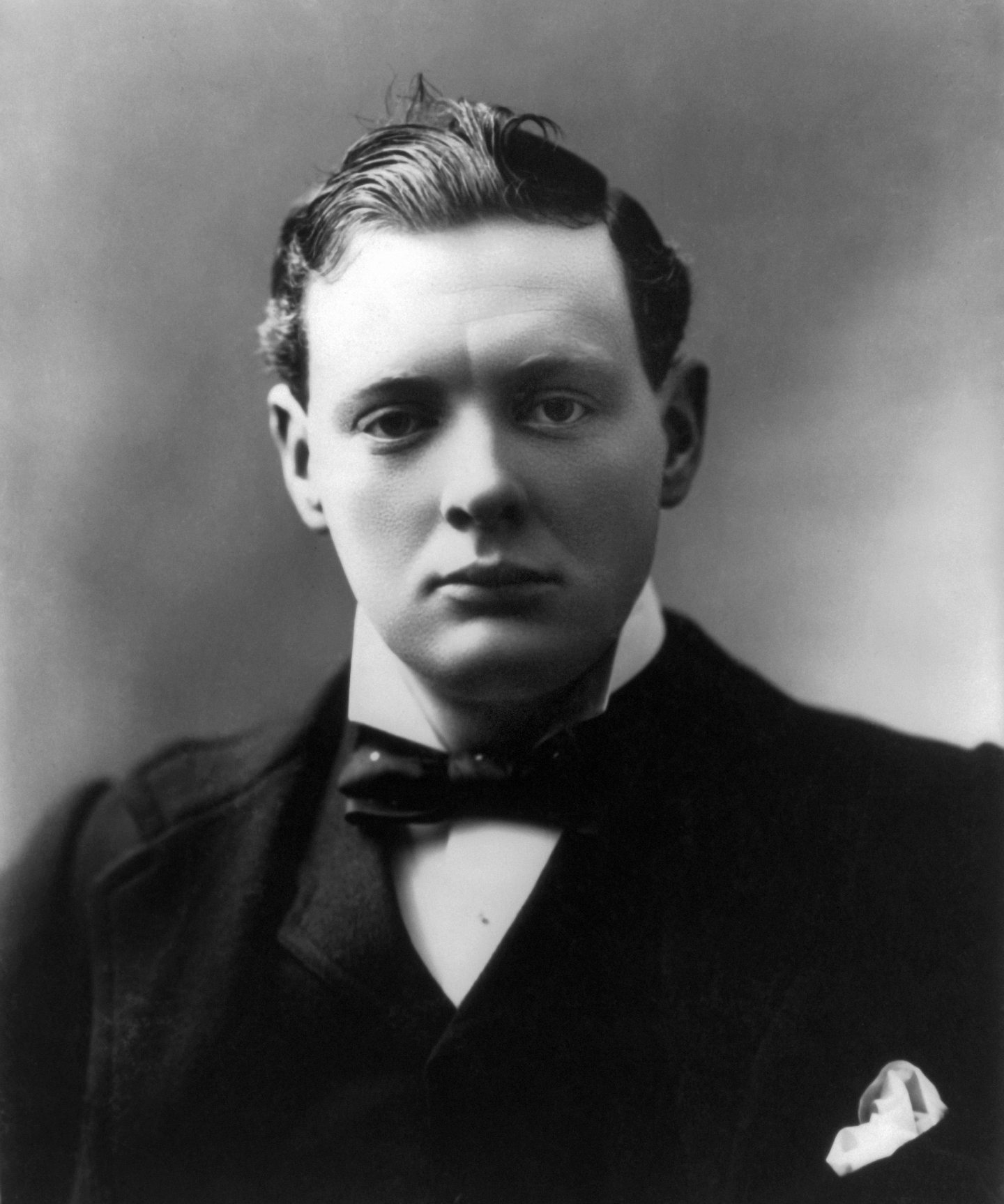

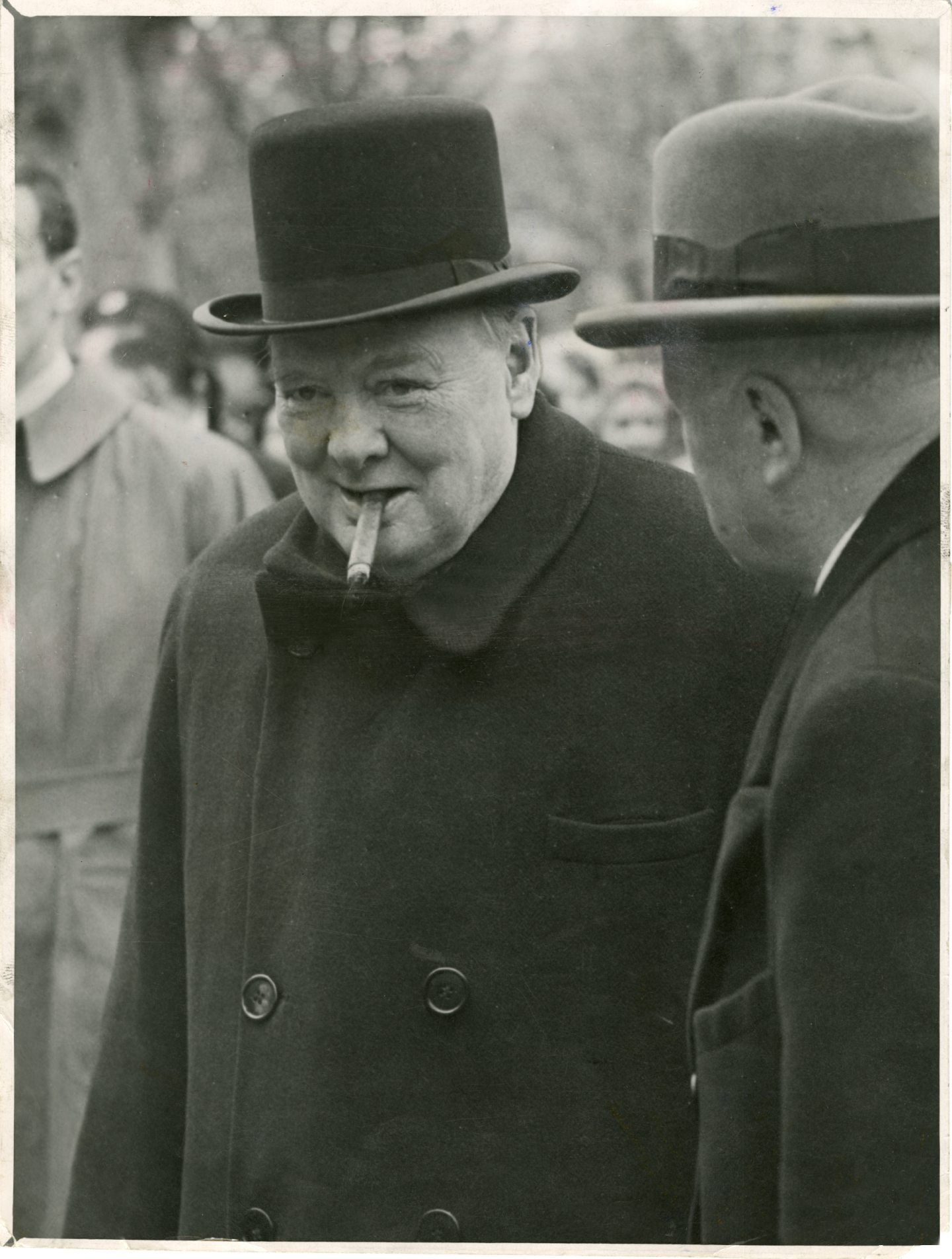
Conversation